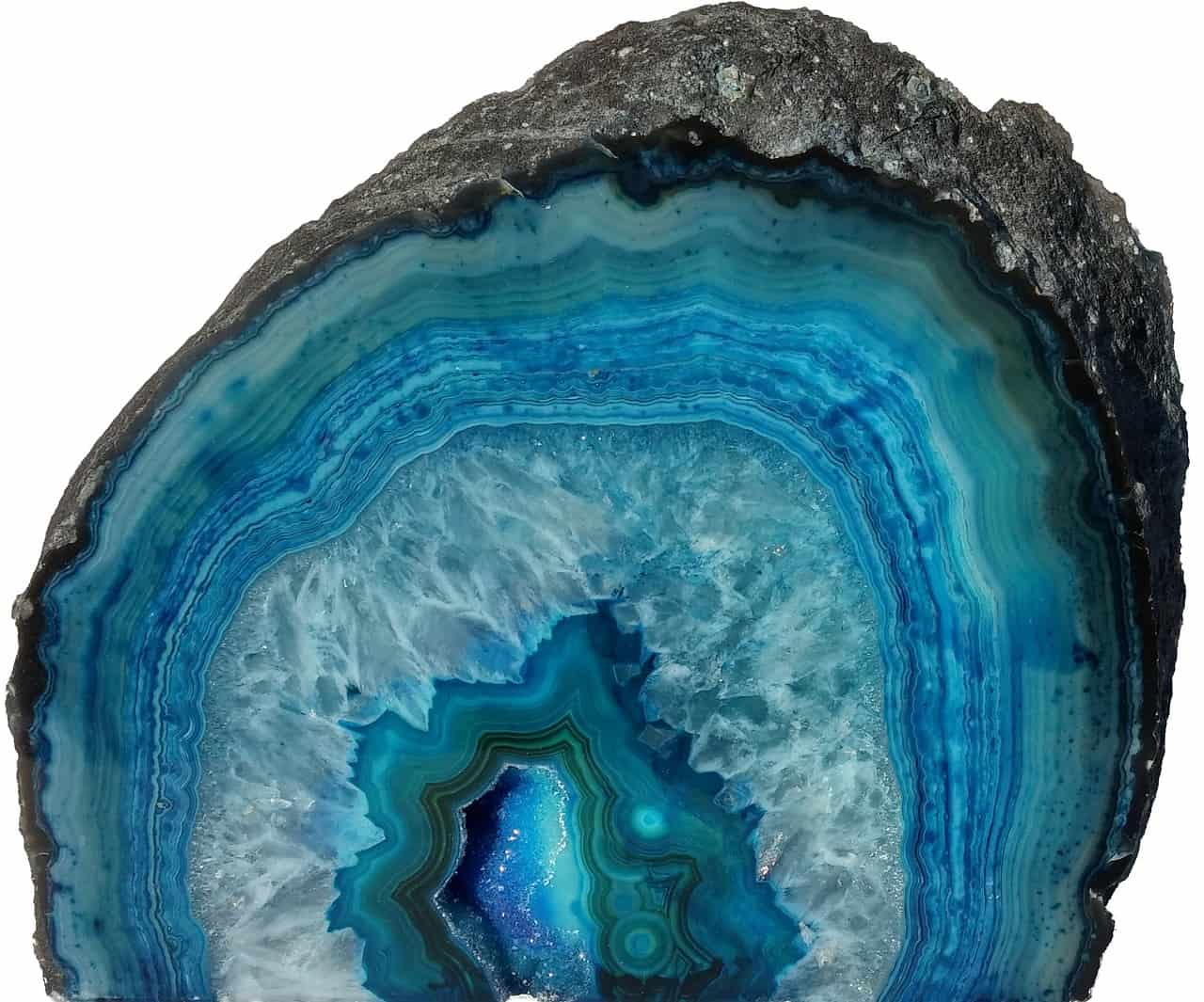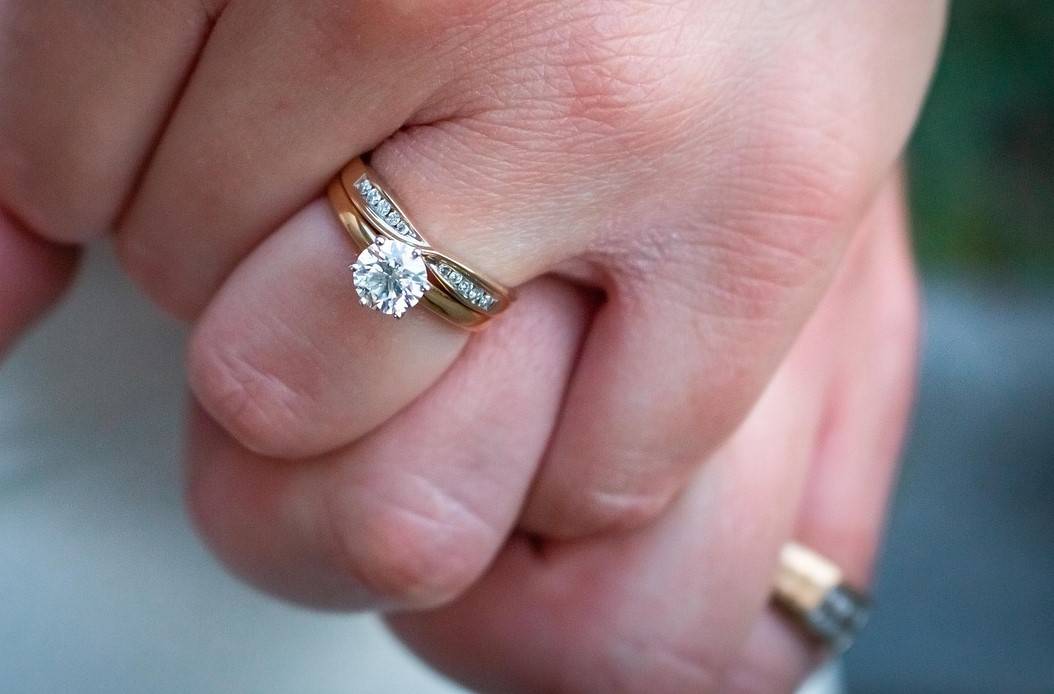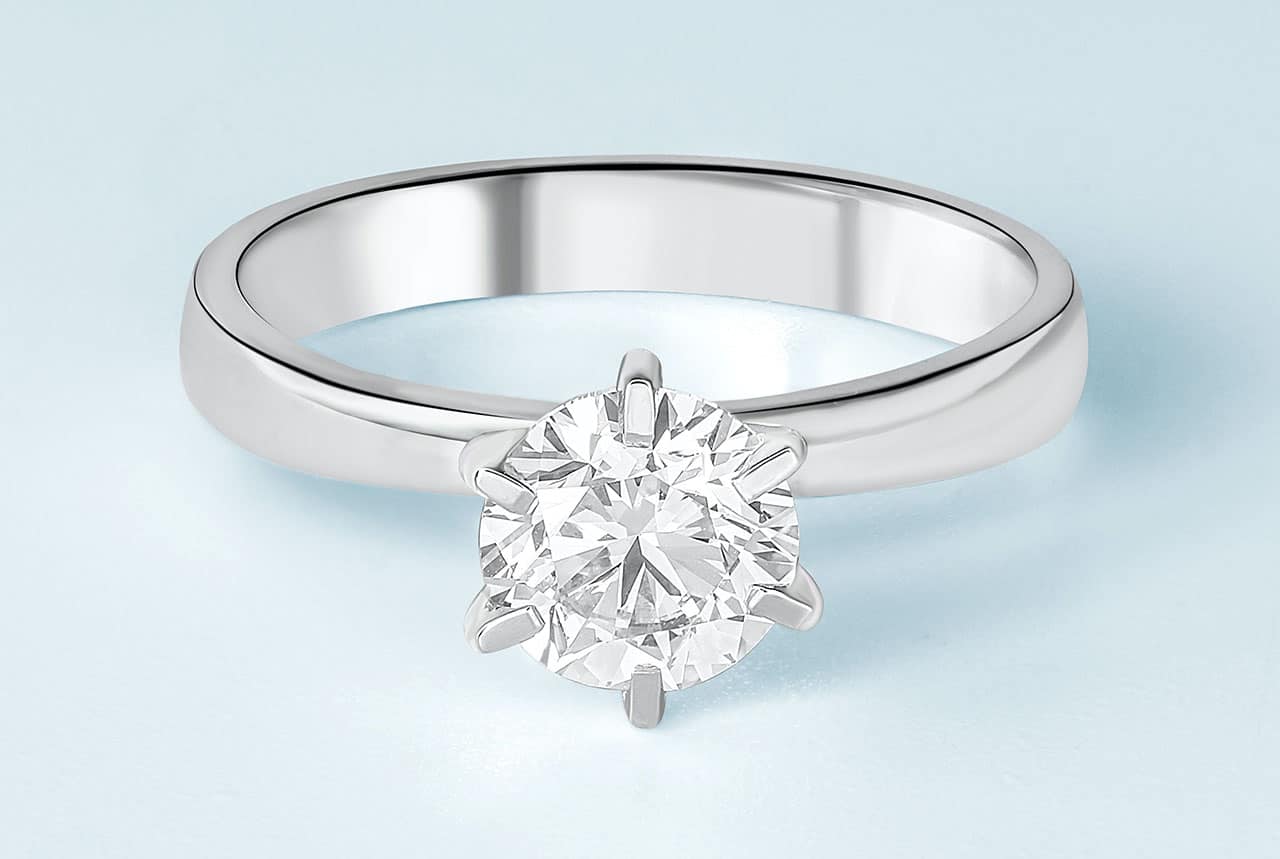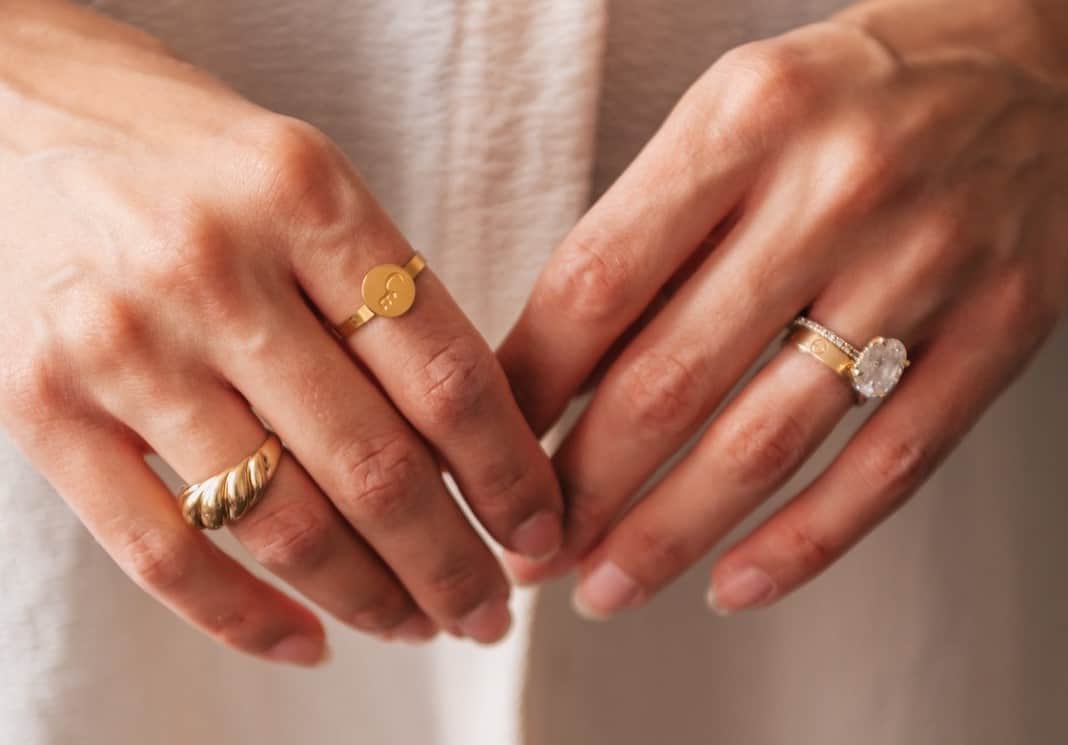Concerned about buying ethical engagement rings?
You're in the right place.
In this Learning Guide, we'll answer the most popular questions about ethical engagement rings like:

- Are All Natural Diamonds Conflict Diamonds?
- How Can I Be Sure I'm Buying Ethical Engagement Rings?
- Are Lab Grown Diamonds Ethical?
What Are Engagement Ring Ethics?
Diamond ethics are very important to today's youth and have increasingly become concerning since the release of the movie Blood Diamond.
You might already know about blood diamonds. In the jewelry industry, we call these conflict-diamonds. In certain areas of the world, diamonds are used to control civil rights by the government during times of war.
There are other ethical concerns that diamond ring customers have aside from diamond origin.
Some of these issues may include environmental issues with mining processes for both diamonds and metals, working conditions, child labor, and other heinous acts involved in the production of fine jewelry.
The video above shows mining conditions in one conflict area- Sierra Leone.
1. James Allen

James Allen is one of the top online diamond retailers in the diamond industry today. They carry a wide array of loose diamonds and ring settings for you to build your own engagement rings.
Aside from engagement rings, they carry diamond wedding rings, men’s alternative wedding bands, and a selection of gemstone and diamond jewelry.
James Allen offers customers the choice to purchase a natural diamond or a lab-created diamond. Currently, they carry around 360,000 loose diamonds of varying qualities and carat weights. They also have around 40,000 ethical lab grown diamonds in their inventory.
James Allen adheres to the Kimberley Process, like most jewelry stores and diamond retailers. However, their efforts in ethical diamond production go beyond the origin. They also provide Canadian diamonds from CanadaMark diamonds, a popular responsibly sourced diamond supplier.
They also claim all of their metal mining is ethical. While we can’t prove beyond a shadow of a doubt that a company is following the Kimberley Process guidelines, James Allen hasn’t given customers a reason to believe otherwise.
Many of the loose diamonds at James Allen have GIA Diamond Grading Reports. However, these diamond certificates don’t tell you the origin.
James Allen’s diamonds come from different sources, but they don’t specifically name exactly where on their website. Most diamond retailers don’t.
If you buy an ethical diamond engagement ring from James Allen, you’ll also get a free lifetime warranty for the ring setting. This covers routine repairs you’ll need like rhodium plating white gold, retipping prongs, and tightening stones.
Pros
- 400,000 ethical loose diamonds
- Ethical metal mining
- CanadaMark diamond retailer
- Free lifetime warranty on ring settings
- Follows the Kimberley Process
Cons
- Much smaller lab diamond collection
2. Clean Origin

Clean Origin has no need to follow the Kimberley Process because they only sell lab-created diamonds. They’ve been around since 2017, but the team has over 100 years of experience in the diamond industry. They operate mainly as an online diamond store.
Lab grown diamonds don’t hold the same value as a mined diamond. They are readily available in large carat weights and eye clean clarity grades.
That’s one of the reasons why a lab created diamond costs much less than a mined diamond of the same diamond grades.
Read also: How Are Lab Grown Diamonds Priced?
Because of how easy it is for scientists to produce man made diamonds, there’s no mining necessary. That's how all lab diamonds are considered conflict-free.
Clean Origin’s ethical diamonds hold around 18,000 loose lab diamonds. All of them are certified by different diamond grading labs including IGI, GIA, and GCAL certified diamonds.
They have a nice selection of ethical wedding ring styles with many choices beside the popular ones. All of Clean Origin’s metals are recycled metals. They have forgone metal mining and only use recycled metal for the majority of their wedding jewelry.

Some pieces of diamond jewelry might not be completely recycled, such as chains, clasps, etc. But for the engagement rings and wedding bands that require a large amount of precious metal, they are 100% certified as recycled gold and platinum by the Responsible Jewelry Council.
Pros
- All Lab Grown Diamonds
- Recycled metals
- 18,000 Loose Diamonds
- 100 Day Returns
Cons
- No warranty for settings

3. Brilliant Earth

Brilliant Earth is a company whose entire marketing campaign rides on conflict-free diamonds. But instead of following other jewelry stores with the Kimberley Process, they strive to do more. Thus, their “Beyond Conflict-Free” slogan was born.
Like James Allen, Brilliant Earth offers a large selection of loose mined diamonds and loose lab diamonds. Currently, they carry around 144,000 loose earth made diamonds and around 80,000 lab grown diamonds of varying grades.
Around 570 of the natural diamonds will come with GIA Origin Reports instead of the standard GIA Diamond Reports that most diamond retailers have. All of Brilliant Earth’s earth made diamonds are said to be mined in Russia, Botswana, and Canada. They are mostly produced in India.

Brilliant Earth puts their best foot forward in diamond ethics by providing customers the options of blockchain diamonds and recycled diamonds. Recycled diamonds are diamonds that were previously owned or used. They’ve been recut and reset in a ring setting to be created new.
The company partnered up with a leading blockchain technology company. It’s used to create an unhackable online database for many big companies. Brilliant Earth is the first to use it for traceable diamond channels.
The database shows a customer a diamond from where it was sourced, all the way through the 7 phases of production before it gets to your hand. Customers are emailed a secure access code to enter the database and see company sign-offs and signatures ensuring that every level of production has been ethical.
Brilliant Earth also uses recycled metals, wooden jewelry boxes, and recyclable shipping materials to minimize environmental impact as much as possible.
With their recycled ring settings, customers have the option to purchase an Extended Service Plan for routine maintenance for engagement and wedding rings, as well as their fine jewelry. The cost is based on the item purchased and lasts for three years with an option to re-up.
Pros
- Provides GIA Origin Reports
- Natural and Lab Grown Diamonds
- Offers Blockchain and Recycled Diamonds
- Ethics focused company
Cons
- Paid warranty only lasts 3 years
- Stock depletes quickly
4. Ritani

Ritani also carries both natural diamonds and lab created diamonds. They didn’t start off as a loose diamond retailer to begin with. Instead, their name was associated with ring settings, rather than ring center stones.
It wasn’t until 2012 when they added loose diamonds into the mix. That was when popular recommended retailer Blue Nile’s ex CEO joined up with the company.
Ritani’s diamond inventory contains around 150,000 loose natural diamonds of varying grades and carat weights. The lab diamond inventory totals around 60,000.
Even though pricing doesn’t fall under conflict-free ethics, Ritani is committed to being ethical as a company by offering customers transparency with their diamond prices. They provide a diamond market analysis to customers to reveal how the price of their diamond is broken down.

Ritani says they also go beyond the standard practices of using the Kimberley Process. They make sure their materials are sourced not only through the mining process, but that the workers are being treated fairly as well.
When they first launched their e-commerce jewelry store, they partnered with the Julius Klein Group. They were one of the first implementers of the Kimberley Process. Ritani sources many (unclear if it’s all) of their diamonds from this member of the Responsible Jewelry Council.
They also claim that some funds used to purchase engagement rings and other jewelry is given back to Africa to build better mining communities.
Because they’re a ring designer first and foremost, on average they’ll be more expensive. Ritani also ensures customers that any partner retailer they work with also follows strict ethical diamond practices.
With your ethical engagement ring from Ritani, you’re also given a free lifetime warranty that will cover all your needed repairs for its lifetime.
Pros
- Lab Colored Diamonds Only
- Affordable Prices
- Big Carat Weights
- GIA, IGI, or GCAL certified
Cons
- Small selection
- No warranty for settings
Ethical Engagement Rings FAQ
Is it Cheaper to Buy Ethical Engagement Rings Online?
Buying diamond engagement rings online instead of in-store is usually cheaper in general. But that’s not due to its responsible sourcing.
The business models of online diamond retailers differ because they don’t have to have all their diamond inventory on hand. Different diamond suppliers appeal their conflict-free diamonds to multiple online retailers.
That’s why you’ll notice that diamonds disappear pretty quickly when browsing stores online. For example, you could have your sights set on an eye-clean 2 carat diamond on BlueNile.com. But if you don’t pull the trigger on your purchase, it could be gone the next day.
Someone looking at JamesAllen.com could’ve bought that same diamond. Neither jewelry store has that diamond physically, but the diamond supplier does.
A regular jewelry store like Kay or Jared has to buy all of the product to fill its cases. This is also why you’ll find only what’s popular in these stores, not unique pieces. They have to sell those pieces, so they only buy what the majority likes.
Diamonds, engagement rings, and gold wedding bands in general are more expensive in-store than online.
Are Ethical Engagement Rings More Expensive?
Aside from being online vs in-store, the price of a diamond can depend on factors like a specialty retailer, setting designers, and grading reports. That’s assuming the diamond grades are the same in comparison.
There are a couple of things that could make an ethical diamond more expensive. Any diamond that claims to follow the Kimberley Process alone shouldn’t be more expensive.
Some retailers that use recycled metals in their jewelry may have their ring settings priced lower than another jewelry store that uses responsibly sourced precious metals.
That has to do with the price it costs to mine metal vs melting recycled precious metal that has already been mined. The price difference doesn’t have to do with it being ethical.
But if they provide a GIA Origin Report instead of the standard GIA Diamond Report, the price might differ. It costs more for GIA gemologists to study the diamond inclusions and crystal structure in order to determine its country of origin.

Brilliant Earth claims their blockchain diamonds don’t have price increases, but some people opt for other retailers with cheaper diamonds.
Red Flags When Buying Ethical Engagement Rings
The problem with buying ethical natural diamonds is that you as the diamond buyer can’t really know for sure that your diamond is truly ethical and conflict-free.
Buying Blood Diamonds
That’s the biggest thing that many have been concerned about since the popularity of the movie Blood Diamond rose.
Many assume that the entire jewelry industry is in cahoots with black market diamonds and conflict diamonds behind customer's backs.
Is the jewelry industry overpriced?
Yes.
Are they trying to use targeted marketing?
What business isn’t?
But are all of the retail companies (corporate or individual) selling blood diamonds?
No.
In fact, 98% of rough diamonds in the world come from conflict-free areas. That means only 2% of the world’s rough diamonds being mined account as conflict diamonds.
The percentage is so small, that we also know where these diamonds are coming out of. Conflict diamonds are said to come from Sierra Leone, The Democratic Republic of Congo, Liberia, Ivory Coast, and Angola.
Buy From A Trusted Retailer
The likelihood of being sold a conflict diamond in a retail jewelry store is extremely slim to none. To keep your chances low, you should buy from a retailer that explains a general understanding of their sourcing.
If they only follow the Kimberley Process, don’t assume they aren’t conflict-free. There aren’t a lot of natural diamond retailers that announce the direct origin. Not because they’re trying to hide it, but it’d be extremely expensive for them to give evidence of origin for every diamond.
They’d have to hike up their diamond prices and no one would want to buy from them anyway. That’s also why only some of Brilliant Earth’s diamonds are blockchain and some have GIA Origin reports.
The only way to guarantee your diamond is conflict-free is buying a lab grown diamond. They are real diamonds with the same chemical, physical, and optical composition as mined diamonds.
You should know that buying a lab grown diamond doesn't necessarily guarantee you a sustainable engagement ring. Those of you concerned with environmental ethics should know that lab grown diamonds still use a large amount of power and energy.
Every diamond retailer should have some sort of proof or stance that they at least follow the Kimberley Process and Fair Trade put in place by the Fair Trade Jewellery Co. Others retailers may have additional certifications.
Etsy and Amazon have become popular places to buy engagement rings from because they come from local businesses and are priced much lower than retailers.
But not every seller on Etsy follows the same strict adherence to conflict free diamonds. They don’t need to. They can type it on their description that it’s conflict free, but if they can offer you any proof with the Kimberley Process or other certifications that corporate stores use, I’d steer clear.
If you were ever going to find a conflict diamond, it’s more likely to float under the radar on these sites rather than at a popular online retailer like the ones I’ve shown you today.
How To Get The Best Deal When Shopping for Ethical Engagement Rings Online?
- Buy diamonds online instead of in-store
- Buy engagement rings online from a popular retailer instead of Etsy or Amazon
- Buy from a retailer with recycled metals concerning environmental ethics
- Buy a recycled gold wedding band concerning environmental ethics
- Buy a conflict free diamond with a GIA Origin Report
- Buy a blockchain diamond with an unhackable paper trail
- Check the diamond retailer’s website for Kimberley Process adherence and sourcing policies
- Buy an engagement ring with a moissanite center stone instead of a diamond
- Create a custom ring with your own ring setting
- Buy a lab diamond for 100% no questions asked conflict free diamonds










